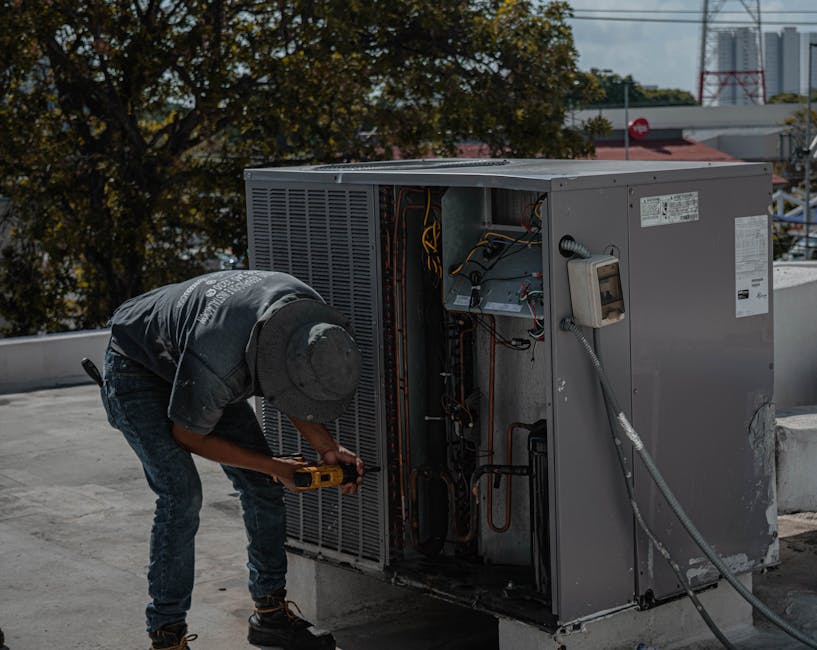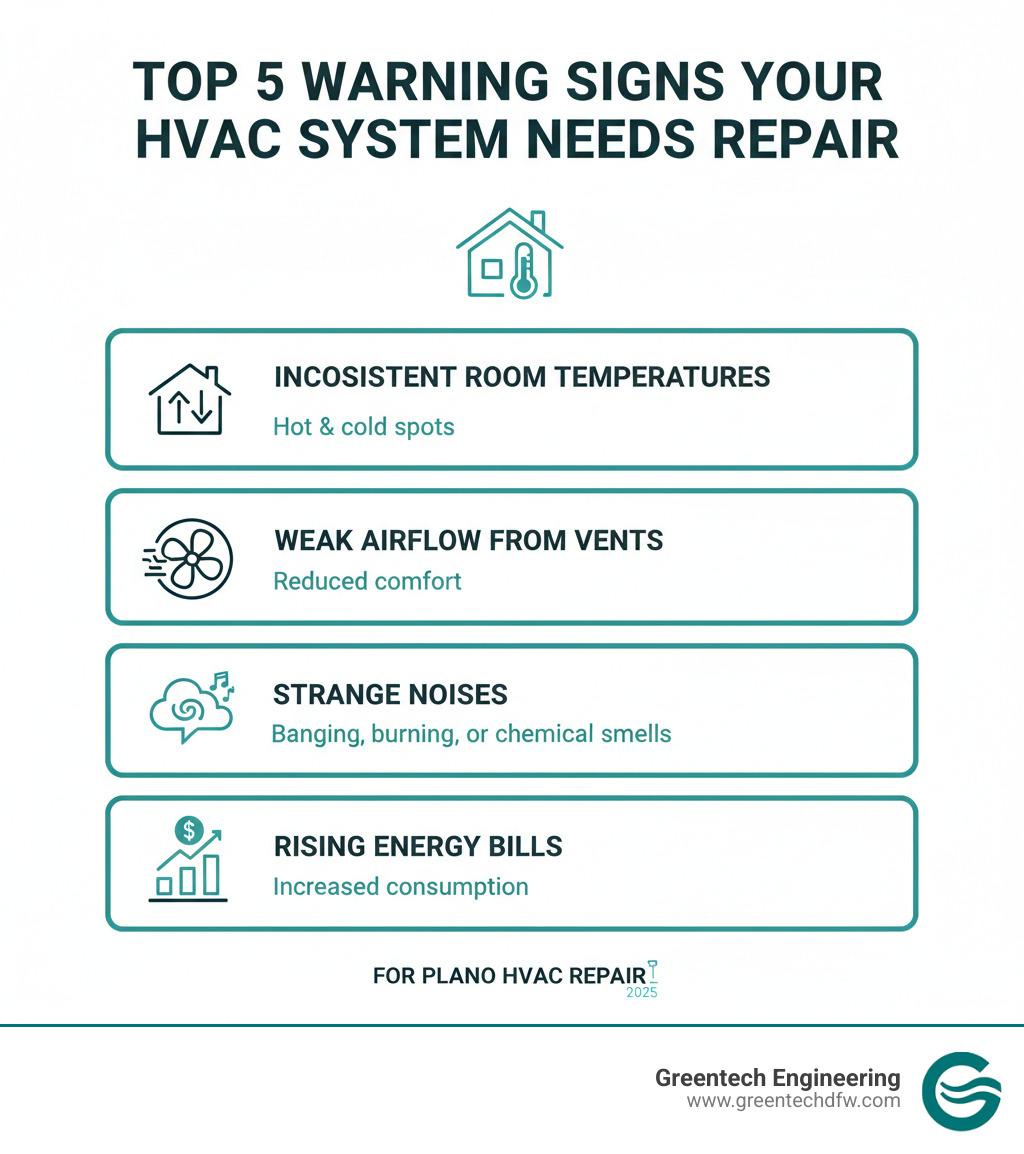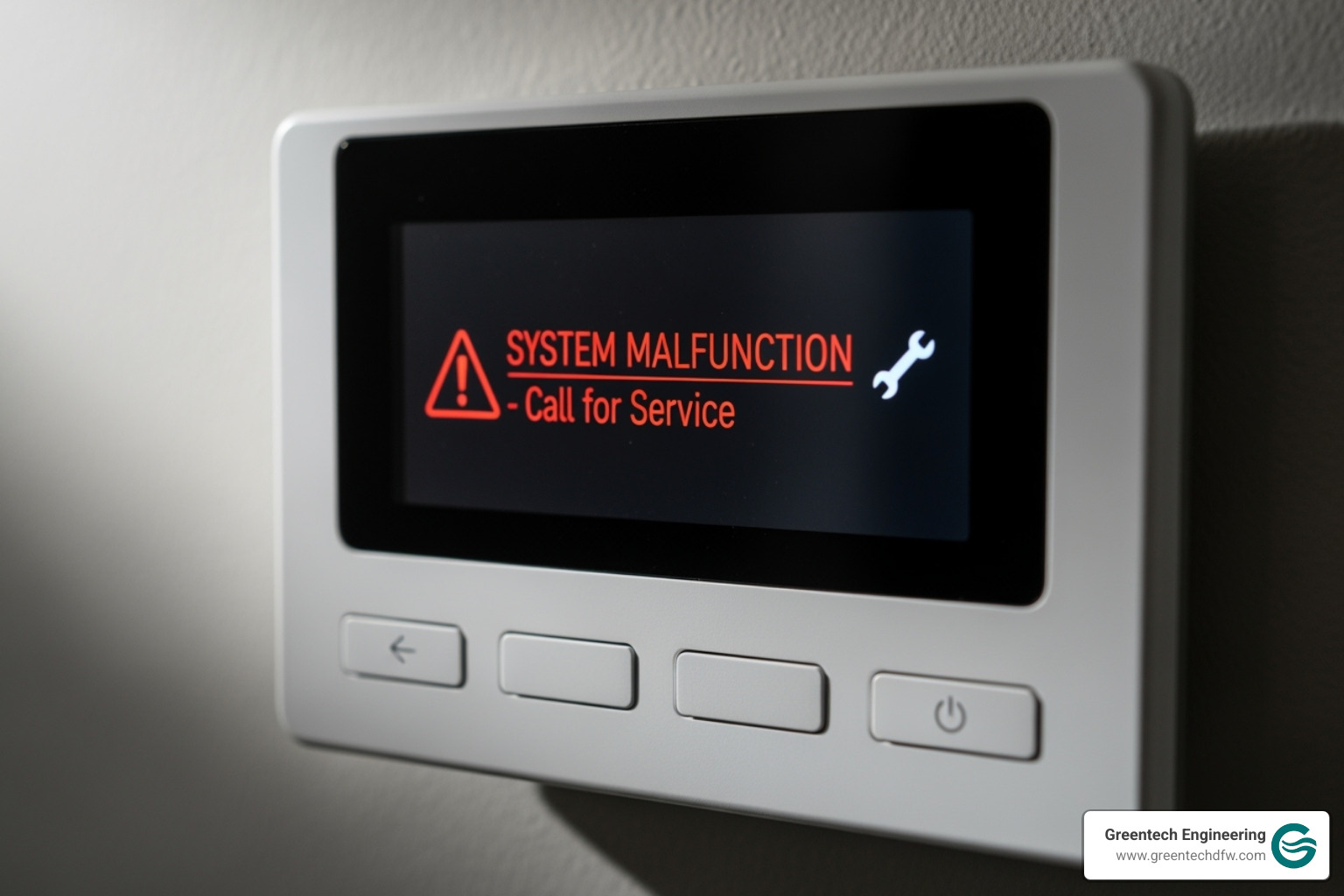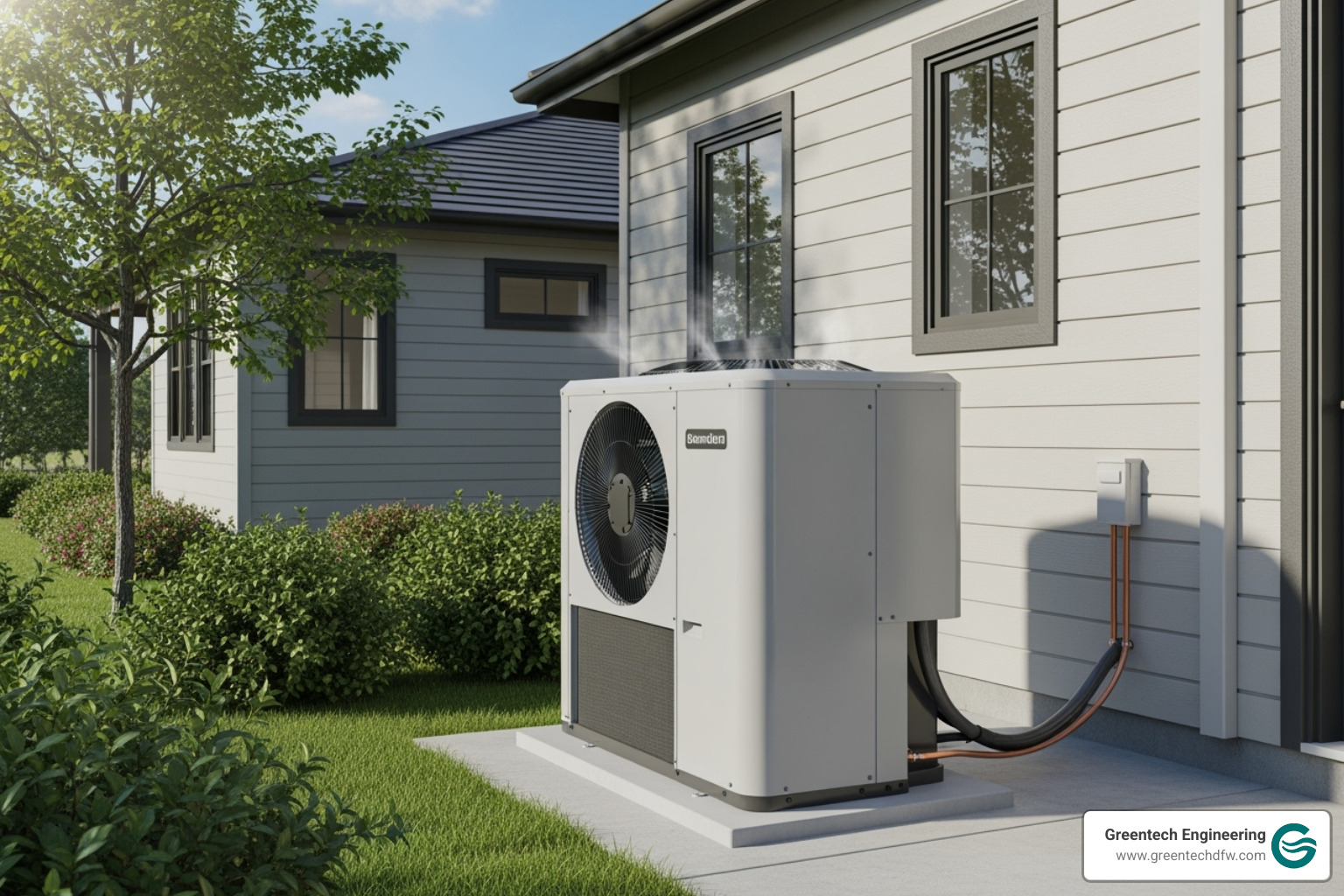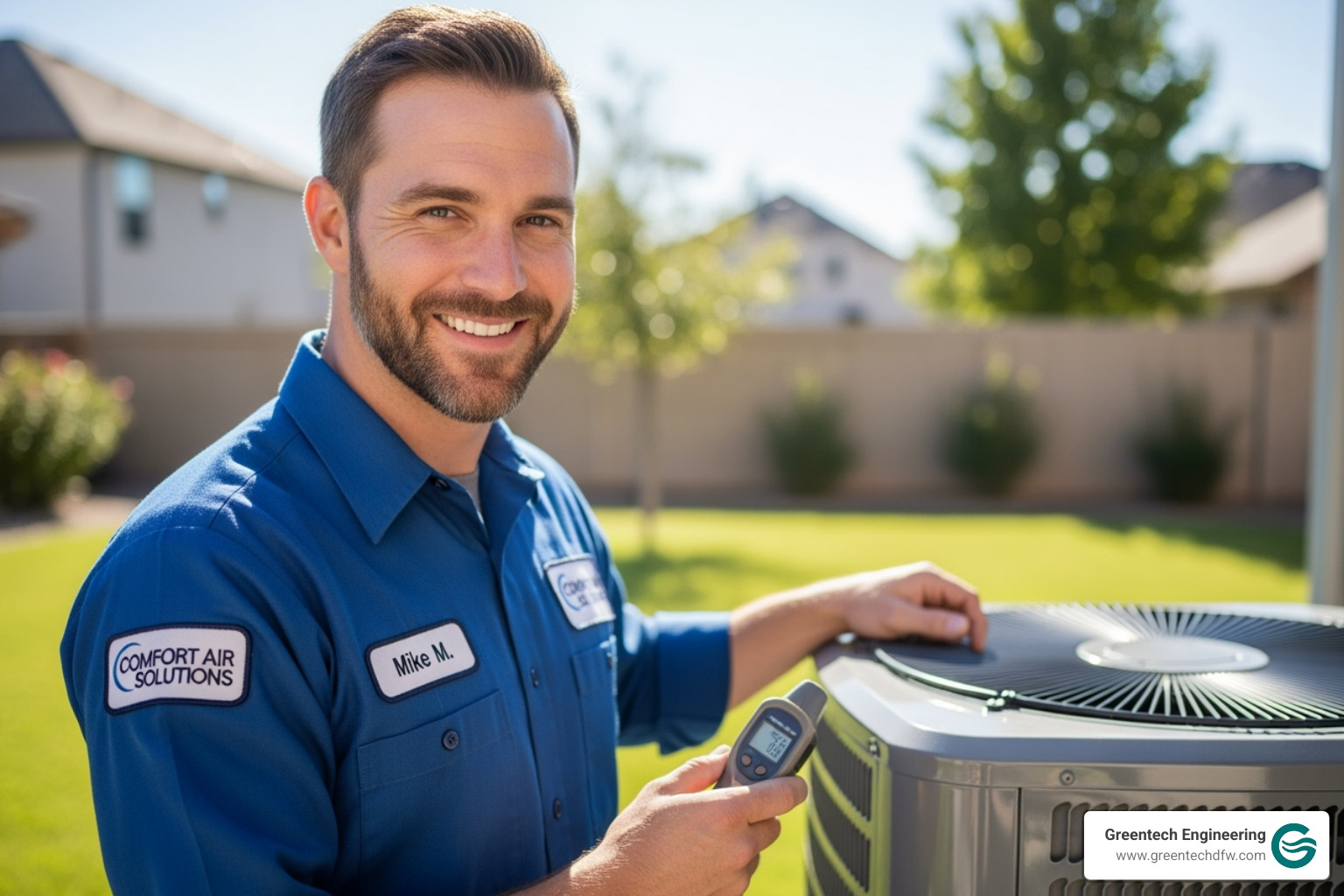Why Reliable HVAC Service is Essential for Plano Homeowners
When you need plano HVAC repair, you need fast, reliable service from professionals who understand Texas weather. With summer temperatures often exceeding 100°F and winter freezes, a functioning HVAC system is essential for comfort and safety in Plano.
Top-rated HVAC repair services in Plano typically offer:
- 24/7 emergency repair for system failures
- Licensed and insured technicians with NATE certification
- Comprehensive diagnostics for all system types
- Upfront pricing with no hidden fees
- Same-day service for urgent repairs
- Warranty coverage on parts and labor
Living in Plano means your HVAC system works harder than in most climates. The extreme temperature swings put constant stress on components, leading to more frequent repairs. Due to the demanding climate, HVAC systems in Texas require professional attention more often.
Regular maintenance can reduce energy consumption by up to 20%, making professional HVAC care a smart financial investment. Whether you’re facing a system failure on a scorching July day or need routine maintenance to prevent costly breakdowns, choosing the right repair service is critical.
The key is finding a local company that combines technical expertise with honest pricing and reliable service, especially when system failures can impact your family’s safety during extreme weather.
Recognizing When Your HVAC System Needs Professional Attention
Before your HVAC system fails completely, it usually sends out warning signals. Learning to recognize these signs can save you from extreme discomfort during a Texas summer or an unexpected cold snap.
Inconsistent temperatures between rooms often signal airflow issues, duct problems, or a faulty thermostat. In Plano’s climate, even a small temperature difference can make your home uncomfortable.
Weak airflow from your vents is another clear sign of trouble. This could be caused by a clogged filter, blocked vent, or a failing blower motor.
Pay attention to strange noises like banging, rattling, or squealing. A loud bang could indicate a serious compressor issue, while grinding sounds often point to worn-out bearings.
Foul odors from your vents are never a good sign. Musty smells usually mean mold in your ducts or on the evaporator coil, while a burning smell could indicate electrical problems.
If your home feels sticky even with the AC on, you’re dealing with increased humidity. Your system should be removing moisture from the air, and this issue can lead to mold growth if not addressed.
System leaks around your indoor unit demand immediate attention. Water puddles could mean a clogged condensate drain, a refrigerant leak, or a frozen coil that is now melting.
Finally, rising energy bills without increased usage are a sneaky warning sign. An inefficient system works overtime to maintain comfort, which is reflected in your utility costs.
If you notice any of these signs, it’s time to call for professional Plano, TX Air Conditioning Repair. Catching problems early usually means simpler, less expensive fixes.
Common HVAC Problems in Plano Homes
Plano’s climate creates specific, recurring problems for local homeowners.
Refrigerant leaks are common due to the near-constant AC use in summer. Low refrigerant means there is a leak that needs to be repaired.
Dirty filters restrict airflow, forcing your system to work harder and potentially leading to frozen coils. This is easily preventable with regular filter changes.
Frozen evaporator coils occur when airflow is restricted or refrigerant is low. The ice buildup blocks cooling and can shut down your system.
Faulty electrical components like capacitors and relays wear out faster in our climate due to frequent on-off cycles.
Drainage issues happen when condensate lines get clogged with algae or debris, which can cause water damage and high humidity.
Malfunctioning thermostats that can’t accurately read temperatures or communicate with your system make it impossible to maintain comfort.
Worn-out capacitors, which help start and run your system’s motors, often fail during periods of heavy use in extreme weather.
The Importance of Emergency HVAC Services
In Plano, a broken HVAC system can be dangerous. When temperatures soar above 100°F or drop below freezing, climate control is a matter of health and safety.
Plano’s weather extremes don’t follow a 9-to-5 schedule. That’s why 24/7 availability for emergency repairs is essential, not a luxury. It means you won’t have to endure dangerous temperatures while waiting for regular business hours.
After-hours failures often happen when systems are under the most stress, such as evenings and weekends. Emergency plano HVAC repair services are there when you need help most.
Emergency services also help protect property from damage. A quick response can prevent secondary problems like frozen pipes or water damage from backed-up condensate lines.
The primary goal is restoring comfort quickly and safely. While emergency calls may have higher fees, the alternative—risking your family’s health or property damage—makes professional emergency Plano, TX HVAC Repair an invaluable safety net.
Understanding Your Home’s HVAC System and Efficiency
For plano HVAC repair, understanding your system helps you make smart decisions about your home’s comfort and budget. Knowing what type of system you have can save you time and money when issues arise.
Most homeowners don’t think about their HVAC system until it breaks. However, a basic understanding of how it works and what makes it efficient can help you spot problems early and communicate better with technicians.
Key Differences Between HVAC System Types
Plano homes typically feature one of several common HVAC system types.
Central Air Conditioners are the standard for Texas cooling. An outdoor unit (condenser and compressor) works with an indoor unit (evaporator coil and air handler). Refrigerant flows between them to pull heat from your home and release it outside, distributing cool air via ductwork.
Heat Pumps are versatile systems that function like a central AC in the summer. In winter, they reverse the process, extracting heat from the outdoor air to warm your home. This makes them highly efficient for Plano’s moderate winters.
Ductless Mini-Splits operate without ductwork. An outdoor unit connects to one or more indoor units, each controlling a specific zone. They are ideal for home additions or houses without existing ducts.
Furnaces are heating specialists that typically burn natural gas or use electricity to create heat, which is then distributed through your ducts. Most Plano homes pair a furnace with a separate AC system, sharing the same blower and ductwork.
Understanding your system is crucial when considering repairs or replacement. For an example of how this knowledge impacts decisions, see this Customer Success Story: Full System Replacement HVAC Repair Plano, TX.
How Efficiency Ratings (SEER & AFUE) Impact Your Energy Bills
HVAC efficiency directly impacts your wallet, especially during Plano’s energy-intensive seasons.
SEER (Seasonal Energy Efficiency Ratio) ratings apply to your air conditioner’s cooling efficiency. The higher the SEER number, the less electricity your system uses. Upgrading from an old 8 SEER unit to a 16 SEER system could potentially cut your cooling costs in half.
AFUE (Annual Fuel Utilization Efficiency) ratings measure your furnace’s efficiency. An 80% AFUE furnace wastes 20% of its fuel, while a 95% AFUE unit wastes only 5%. This difference can lead to significant savings on your heating bills.
In Texas, where your HVAC system works harder than almost anywhere else, every point of efficiency matters. When considering an upgrade, these ratings are crucial. For more information on replacement options, explore Plano, TX AC Replacement: Total Home Comfort Delivered.
Understanding your system and its efficiency is practical information that affects your comfort and budget every month.
The Ultimate Guide to Plano HVAC Repair and Maintenance
Regular HVAC maintenance is like car care—it prevents major headaches. But when your HVAC fails during a Texas heatwave, you’re stuck. Understanding repair vs. replacement, preventive maintenance, and indoor air quality can save you money and keep your family comfortable.
Deciding Between Repair and Replacement
Should you fix your aging system again or replace it? Several factors can guide your decision.
System age is a key indicator. If your AC is over 10 years old or your furnace is over 15, major repairs become less cost-effective.
Frequency of repairs is another sign. If you’re constantly calling for service, those costs add up. It may be time to invest in a new, reliable system.
Energy efficiency decline is a red flag. If your energy bills are rising without a change in usage, your system is likely losing efficiency.
The R-22 refrigerant phase-out affects older systems. This refrigerant is now banned and expensive, making it more economical to upgrade to a modern system if you have a major leak.
Finally, consider overall performance. If your system struggles to keep your home comfortable, it may be time to explore replacement. Learn the Need a New AC Installation in Plano? Signs that point toward a new unit.
Proactive Maintenance to Prevent Costly Plano HVAC Repair
The best plano HVAC repair is the one you avoid. Regular maintenance catches small problems before they become expensive emergencies.
Bi-annual tune-ups are essential. Schedule one in spring for your cooling system and another in fall for your heating system. A professional can spot and address potential issues.
Air filter replacement is the most important DIY task. A dirty filter restricts airflow, forcing your system to work harder. Check your filter monthly and replace it every 1-3 months.
Coil and drain line cleaning should be done by a professional to ensure efficient heat transfer and prevent water damage.
Electrical connection checks during maintenance visits ensure safe and reliable operation by tightening any loose connections.
Lubricating moving parts like motors and fans prevents wear and tear, keeping your system running smoothly.
Regular maintenance can lower energy use by up to 20%, reducing utility bills and emergency calls for Plano, TX Air Conditioning Service.
How Indoor Air Quality Relates to Your HVAC System
Your HVAC system is your home’s primary air quality manager. Poor indoor air quality can trigger allergies and worsen respiratory conditions.
Air filtration starts with your HVAC filter. Upgrading to a higher MERV-rated filter can capture smaller particles like pollen and mold spores.
Ductwork condition is crucial. Leaky or dirty ducts can circulate dust, allergens, and contaminants throughout your home.
Humidity control is important in Plano’s climate. Your AC removes some humidity, but dedicated dehumidifiers or humidifiers can provide additional control.
Ventilation systems like Energy Recovery Ventilators (ERVs) bring in fresh air without wasting energy.
Air purifiers and UV light systems offer advanced air quality control. UV lights installed in your HVAC system can kill mold, bacteria, and viruses.
Improving your home’s insulation complements these solutions. Learn more about Plano, TX Attic Insulation.
Choosing a Trustworthy HVAC Partner in Plano
Finding the right plano HVAC repair company is crucial, especially during a breakdown. You need a local expert with the right credentials who values honest communication over high-pressure sales.
When your AC fails in a Texas heatwave, you need a partner who understands Plano’s climate challenges. A trustworthy technician will explain the problem, outline your options, and respect your decision.
Local expertise is also important. A local company understands regional issues and is more likely to be available for future warranty service. You can verify local business licenses on the official Plano government website.
The Benefits of a Licensed and Insured Technician
Working with credentialed technicians protects you and ensures quality work.
NATE-certification indicates that a technician has passed rigorous testing and is current with the latest technology and best practices.
TDLR licensing is required by the Texas Department of Licensing and Regulation, ensuring technicians meet state standards for competency and safety.
Insurance protection covers you in case of accidents or damage during service. Without it, you could be liable for costs.
Licensed and insured technicians also ensure quality workmanship and code compliance, which keeps your system operating safely and prevents future issues. This provides peace of mind knowing that qualified experts are handling your home’s critical systems.
What to Look for in a Plano HVAC Repair Warranty
A solid warranty shows a company stands behind its work. However, not all warranties are the same.
Workmanship guarantees cover the quality of the repair or installation itself. This means any issues caused by the labor will be fixed at no extra cost.
Parts warranties protect you if a component fails prematurely. These are typically offered by the manufacturer, and the coverage period can vary.
For new systems, manufacturer’s warranties often cover major components for 5-10 years or more. Remember to register your equipment to activate the full warranty.
Always get clear, written terms for any warranty. This documentation protects both you and the service company.
A warranty is only as good as the company backing it. Choose a reputable local company with a history of honoring its commitments. We are proud to be a trusted Plano, TX HVAC Company that takes care of our neighbors long after the service call.
Frequently Asked Questions about HVAC Repair in Plano
Plano homeowners often have similar questions about their HVAC systems. Here are answers to some of the most common ones.
How often should my HVAC system be maintained?
We recommend bi-annual maintenance, or twice a year. Schedule one visit in the spring to prepare your AC for summer and another in the fall to get your heating system ready for winter.
Plano’s climate, with its 100°F summers and freezing winters, puts extreme stress on HVAC components. Regular maintenance helps prevent breakdowns during peak seasons, improves energy efficiency, and extends your system’s lifespan. It’s a small investment that can save you from major headaches.
What is the difference between an AC unit and an HVAC system?
This is a common point of confusion. HVAC is an acronym for Heating, Ventilation, and Air Conditioning. It refers to your entire home comfort system.
Your AC unit is just one part of that larger system. The HVAC system includes your furnace or heat pump for heating, the ductwork, the thermostat, and the air conditioning components. Think of the AC unit as the engine and the HVAC system as the entire car.
Can a dirty air filter really cause my AC to stop working?
Yes, absolutely. A clogged air filter is one of the most common and preventable causes of AC failure.
When a filter is dirty, it causes restricted airflow. This forces your system to work harder and can lead to a frozen evaporator coil. As ice builds up on the coil, it can no longer cool your home, and the system may shut down completely to prevent permanent damage.
This complete shutdown can be caused by something as simple as a clogged filter. Simple prevention is key: check your filter monthly and replace it every 1-3 months. This easy task can save you from an emergency plano HVAC repair call on the hottest day of the year.
Conclusion: Ensuring Year-Round Comfort in Your Plano Home
In Plano, your HVAC system faces extreme challenges, from scorching summers to freezing winters. With the right approach to maintenance and repairs, you can ensure your home remains a comfortable refuge year-round.
We’ve covered the key warning signs that signal a need for plano HVAC repair, the importance of proactive maintenance, and how to decide between repairing or replacing your unit. Understanding your system and its relationship with indoor air quality can save you money and create a healthier living environment.
When you need professional help, choose a licensed, insured, and NATE-certified technician. At Greentech Engineering, we provide honest expertise focused on getting your system running correctly.
The bottom line is that your comfort and safety are paramount. With regular maintenance and a trusted HVAC partner, you can enjoy reliable performance in every season. Don’t wait for a system failure—whether you need routine service or emergency Plano, TX Heating Repair, we’re here to help.








